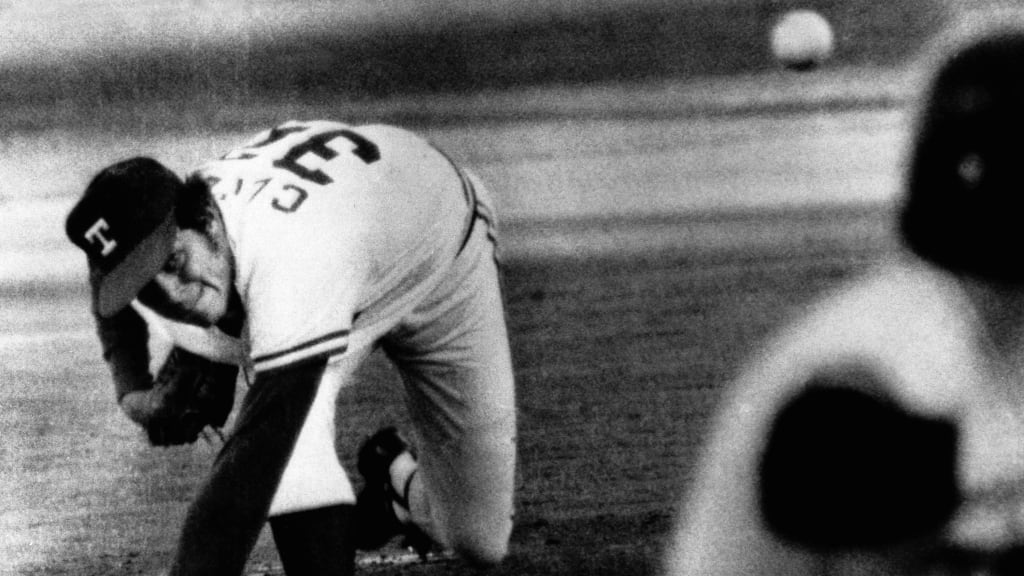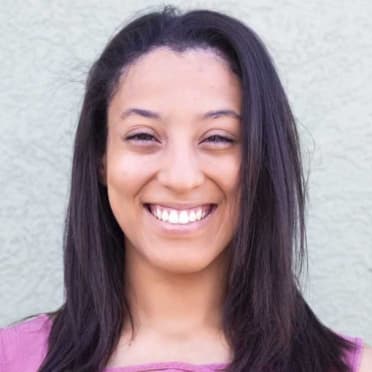ARLINGTON -- The day is June 27, 1973. An 18-year-old David Clyde is sitting in the bullpen at Arlington Stadium thinking about how on earth he wound up here.
Clyde was just months removed from a dominant high school season, in which he went 18-0 and allowed just three earned runs in 148 innings in his senior year at Westchester High School in Houston. On June 5, the Rangers selected him No. 1 overall in the 1973 MLB Draft, and just 22 days later, he sat in that bullpen at Arlington Stadium awaiting his big league debut, set to face off against future Hall of Famer Jim Kaat and the Minnesota Twins.
On Tuesday, prior to the Rangers game against the Tigers, Texas recognized the 50th anniversary of Clyde’s Major League debut. Clyde and former teammates Bill Gogolewski -- who pitched the final four innings in that game against the Twins -- shortstop Toby Harrah and Rangers Hall of Famer Tom Grieve were on hand for the ceremony. Gogolewski threw the ceremonial first pitch because Clyde is recovering from his fifth shoulder surgery.
Fielding questions from the media, Clyde reflected on a life-long dream that became a cautionary tale of prematurely promoting players to the big leagues.
Clyde truthfully only found himself in that situation because of the Rangers’ poor attendance, along with a poor financial situation at the time. And his debut succeeded, as far as its intended purpose. After averaging fewer than 7,000 fans per game through the first two seasons in Texas, the 35,698 fans for Clyde’s debut gave the club the first sellout in its history. The start of the game was delayed 15 minutes due to the heavy traffic of fans traveling to Arlington.
“That had to be the longest 15 minutes in my life,” Clyde recalled. “It was almost like you're getting ready to unwrap what you know is the present you wanted on Christmas morning, and you just start to peel the package open and Mom and Dad come down and say ‘Nope, not until after breakfast.’ So, yes, a very long 15 minutes.”

In all, it was a mostly successful debut for Clyde, who walked the first two batters he faced before striking out the next three hitters in the top of the first inning. The lone hit he allowed during his outing was a two-run homer to Mike Adams in the second inning. In five innings, he struck out eight and allowed just the two runs despite seven walks. It was enough for Clyde to secure his first big league win. Kaat was tagged with the loss.
“I was just waiting to get it over with because everything has been building towards it,” Clyde said of the week leading up to his debut. “Again, it's kind of like Christmas coming. It never seems to get there.”
Clyde does admit to being worried about how his teammates would feel about “some kid” just coming up for the moment they all dreamed of without having done much to get there besides exist as the No.1 pick.
“I'm sure there was some animosity,” he said. “A lot of guys struggle a long, long time to get to the big leagues. And sometimes they only get there for a small moment. Here, all of a sudden, I come along without really doing a whole lot. I'm getting to live the dream. It was a situation that I didn't ask to be put in, but it was a situation I dreamed of being [in]. So I would hope that my teammates would realize that I did not ask to be in that situation.”
Clyde went on to pitch two years with the Rangers before being sent to the Minor Leagues for three years. He eventually made it back to the Majors with Cleveland for two seasons before a second shoulder surgery ended his baseball career at just 26 years old. He finished with a career ERA of 4.63 in five big league seasons.
Clyde said he doesn’t like to think about the what-ifs. What if he had pitched in the Minors first and received proper development? No, it’s about moving forward each day.
“My dad, he taught me a long time ago that you look forward, not backwards,” Clyde said. “Kind of an old Satchel Paige saying, ‘If you're looking back over your shoulder, they're gaining on you.’ So he always taught me to look forward. Yesterday's history. It's nice to know about, learn from and read about maybe 20 years later. But you can't focus on the day or focus on tomorrow if you’re thinking about yesterday.”
Most of all, he’s more than thankful that baseball as a whole seems to have learned from its mistakes, even if he’s become the not-so-shining example of it.
“The biggest thing is that I think baseball has learned, 'Let's not do that again,'” Clyde said. "What we have to, first and foremost, understand [is] baseball is a business. It's an even bigger business today than it was 50 years ago. But we also have to realize that a lot of times when we draft young players, we're investing in the future. It’s a long-term type investment. So out of my career, I would hope that they learn that. "Let's not rush talent. Let's develop it. Let's look to the future, not just today.”
